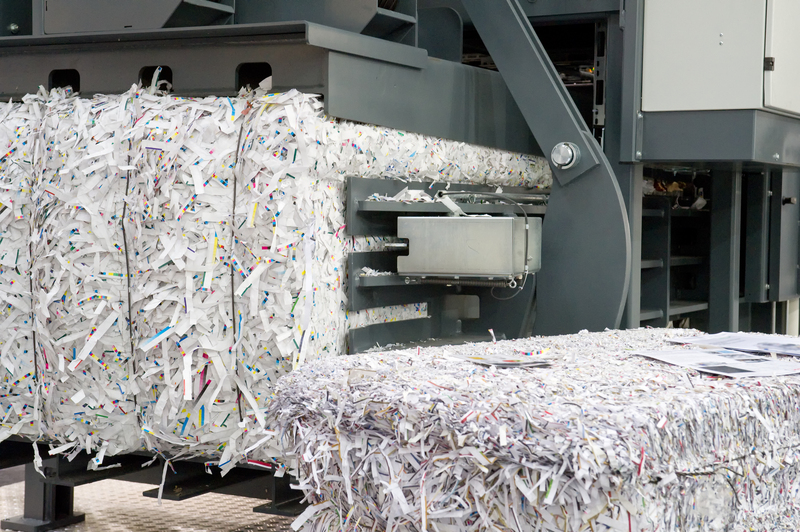Creative Approaches to Minimize Waste in Your Home
Modern life produces a staggering amount of waste, from food scraps to packaging materials. Reducing household waste isn't just an environmental responsibility--it's also a way to save money, live more consciously, and cultivate a sustainable lifestyle. This comprehensive guide unveils creative approaches to minimize waste in your home while maintaining comfort and convenience. Whether you're a family, a couple, or living solo, these tips and strategies will empower you to reduce, reuse, and recycle in style!
Why Focus on Reducing Household Waste?
Waste pollution poses a critical challenge to our planet. Growing landfills, plastic-filled oceans, and greenhouse gas emissions threaten ecosystems and communities. By adopting sustainable waste reduction practices at home, you can dramatically lessen your environmental impact. Plus, creatively minimizing waste often leads to:
- Saved money on groceries and household items
- A tidier, more organized living space
- A greater sense of responsibility and accomplishment
- Enhanced creativity and DIY skills

1. Adopt a Zero-Waste Kitchen
The kitchen is a major source of daily household waste. By rethinking your food storage, shopping habits, and meal prep, you can dramatically reduce kitchen waste.
Smart Shopping Habits
- Buy in Bulk: Purchase dry goods such as rice, beans, and nuts from bulk bins using reusable containers or bags. This eliminates single-use packaging.
- Choose Local and Seasonal: Shop at farmers markets or local produce stands. Fresh, seasonal foods often have less packaging and a smaller carbon footprint.
- Plan Meals: Write a weekly meal plan and grocery list. This helps you buy only what you need, minimizing spoilage and waste.
Creative Food Storage Solutions
- Swap Plastic for Glass: Use glass jars and containers to store leftovers. They're reusable, see-through, and keep food fresh longer.
- Beeswax Wraps: Replace disposable cling film with reusable beeswax wraps for sandwiches, cheese, and produce.
- DIY Freezer Meals: Freeze excess cooked food in portioned containers for future quick meals.
Upcycle Food Scraps
- Homemade Vegetable Broth: Collect peels and ends from vegetables in a freezer bag and boil them to make a nutritious broth.
- Regrow Veggies: Many vegetables, like green onions and celery, can be re-grown from kitchen scraps in water or soil.
- Fruit Peels for Cleaning: Use citrus peels to infuse vinegar, creating a natural all-purpose cleaner.
Each step you take in your kitchen toward waste reduction at home is meaningful. The key is consistency and curiosity--keep looking for new ways to shrink your waste output!
2. Rethink and Reduce Packaging Waste
One of the biggest contributors to household waste is excessive packaging, especially plastics. Getting creative with your shopping and storage habits helps minimize packaging waste at home.
Eco-Friendly Shopping Strategies
- Tote Bags Over Plastic: Always bring reusable shopping bags to stores.
- Pick Loose Produce: Choose fruits and vegetables without pre-packaged wraps and bags.
- Bare Essentials: Buy essentials like soap, shampoo, and cleaning products in bulk or as refills from zero-waste stores.
DIY and Repurposing Packaging
- Creative Storage: Glass jars from jams, sauces, and pickles can be washed and reused for dry goods or lunch containers.
- Upcycled Planters: Tin cans and plastic containers can become quirky planters or organizers.
- Craft Projects: Empty boxes or packaging can become art supplies for kids' activities or organizing trays in drawers.
By making smart choices to minimize packaging waste, you not only reduce your environmental impact but also declutter your space and save money on storage solutions.
3. Make Composting a Creative Habit
Composting is a brilliant way to divert organic waste from landfills and create nutrient-rich soil for plants. Luckily, there are many fun and inventive ways to make composting fit your lifestyle, even in small spaces.
Composting Options for Every Home
- Backyard Pile: Dedicate a corner of your garden to compost fruit/veg scraps, leaves, and yard waste.
- Worm Bin (Vermicomposting): Perfect for apartments--use a small container with special worms to transform scraps into compost.
- Bokashi Buckets: Ferment kitchen waste indoors using Bokashi bran, which quickly breaks down food, including meat and dairy.
Creative Uses for Finished Compost
- Home-grown Herbs and Veggies: Use compost in pots or garden beds to grow your own food.
- Potted Plant Boost: Top dress houseplants with fresh compost for an organic nutrient kick.
- Gift Idea: Package homemade compost in decorated jars to gift to green-thumbed friends.
By embracing composting as a waste minimization strategy, you're turning everyday scraps into a valuable resource, directly helping the environment and possibly inspiring your community to follow suit.
4. Reimagine and Reuse Household Items
Before tossing something into the trash, ask: Can this be reused, repurposed, or repaired? With a little creativity, you can give new life to many household objects, reducing waste and adding personality to your space.
Innovative Repurposing Ideas
- Old Clothes: Turn shirts into shopping bags, cleaning rags, or quirky pillow covers.
- Glass Jars: Use as vases, pen holders, or spice containers.
- Bread Bags: Reuse as trash liners for small bins or pet waste bags.
Repair Before You Replace
- Sewing Skills: Patch up clothes and linens to extend their life.
- Tech Fixes: Learn simple electronics repairs from online tutorials before discarding gadgets.
- Furniture Makeovers: Paint or reupholster old chairs and tables to give them contemporary flair.
Repurposing not only helps minimize household waste, but also fosters creativity and unique home decor. Share your refurbished projects with friends, or on social media, and inspire others to see value in everyday items!
5. Embrace Digital Solutions to Reduce Paper Waste
Technology offers innovative ways to cut down on paper waste. Moving toward a digitally centered lifestyle will save trees and reduce clutter at home.
Go Paperless Where Possible
- Digital Billing & Banking: Opt for e-statements and online bill payments.
- Read Online: Choose e-books, online magazines, and news over paper versions.
- Cloud Storage: Store documents, receipts, and photos online instead of printing.
Creative Paper Reuse
- Scratch Pads: Use the backside of printed pages for notes and grocery lists.
- Homemade Gift Wrap: Decorate newspaper, old maps, or brown bags for unique wrapping paper.
- Recycled Crafts: Turn used envelopes, cardboard, and magazines into greeting cards and collages.
With a little innovation, you can substantially reduce the paper waste from your home while still meeting your daily needs.
6. Switch to Reusable and Refillable Alternatives
Replacing single-use items with durable, reusable products is an essential step in minimizing household waste. Consider these swaps:
- Water Bottles: Carry a stainless steel or glass bottle instead of buying plastic ones.
- Coffee Cups: Bring your own travel mug to your favorite cafe.
- Cleaning Cloths: Replace paper towels with washable rags or microfiber cloths.
- Refill Stations: Check your area for stores offering soap, shampoo, and cleaning supply refills.
- Reusable Shopping Bags: Keep a few nylon or canvas bags handy for all your errands.
Not only do these switches help minimize household waste production, but they also reduce your exposure to harmful chemicals found in many disposable products.
7. Get the Whole Family Involved
Minimizing home waste is more effective--and more fun--when everyone plays a role. Here are ways to make waste reduction a family project:
- Assign Responsibilities: Make composting, recycling, and sorting part of daily routines for kids and adults alike.
- Set Challenges: See how long your family can go without using certain disposable items, or compete to create the best upcycled craft.
- Teach and Share: Show children the mantra of "reduce, reuse, recycle" through hands-on activities and creative projects.
- Community Action: Organize or participate in neighborhood clean-ups or zero-waste workshops.
By educating and empowering each household member, you build a culture of sustainability that will last for generations.
8. Make Recycling More Effective
Recycling isn't a cure-all but is an essential part of a holistic household waste minimization strategy. To make recycling work efficiently:
- Know Your Local Rules: Research what materials your city's recycling program accepts.
- Clean, Separate, and Sort: Rinse containers and sort paper, plastics, and metals properly to prevent contamination.
- Recycling Stations: Designate clear, labeled bins in your kitchen or garage for easy sorting.
Remember, recycling is most effective when combined with reducing and reusing. The less you use, the less you have to recycle!

Bonus Tips: Advanced and Artistic Ways to Cut Waste
- Host a Swap Party: Trade clothes, gadgets, books, or decor with friends instead of buying new.
- Mend and Alter Instead of Tossing: Take old clothes to a tailor or learn basic sewing for repairs.
- Creative Gifting: Give experience gifts instead of items--such as classes or concert tickets.
- Eco-Art: Make art or furniture from reclaimed materials--think pallet wood or bottle caps.
- Green Home Decor: Decorate with thrifted or upcycled items for a unique, earth-friendly touch.
Conclusion: Embrace Waste Reduction as a Creative Lifestyle
Embracing creative approaches to minimize waste in your home doesn't have to be daunting. It's about making mindful choices, experimenting with new habits, and seeing resources in what you once considered "waste." Whether you're reorganizing your kitchen, starting a compost bin, or crafting with reusable materials, every small step counts. Not only will you shrink your ecological footprint, but you'll also build a more resourceful, joyful, and eco-conscious household.
Start today: Pick one creative idea from this article and put it into practice! Share your journey with friends and family, and inspire your community to rethink and reduce waste. Together, we can make a significant impact--one creative solution at a time!